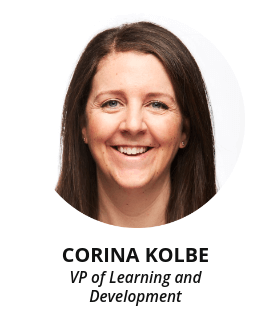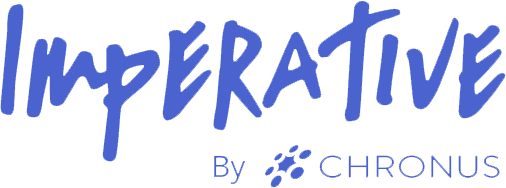How Zillow Built Their Cloud HQ With Imperative
Overview
In 2020, Zillow announced that distributed work would be permanent at Zillow, creating a new standard for the workplace. This new way of working required a strategy allowing flexibility while maintaining connection: a strategy Zillow terms the “Cloud HQ.” In building their strategy for a distributed world, Zillow partnered with Imperative to empower their employees to virtually build connection through high-impact conversations & relationships — the kind that used to only be possible when face-to-face.

“The work that we’re doing with Imperative is exciting because it provides us that virtual option of connection for people who aren’t physically coming together often.”
Corina Kolbe, VP of Learning & Development, Zillow
Challenge
Connecting Employees Across a Distributed Workforce:
Zillow identified five key elements to creating an effective Cloud HQ:
- Collaboration
- Care
- Community
- Communication
- Connection
Zillow treats connection as central to key business initiatives such as onboarding, career development, team building, and external and customer relationships. With 90% of their employees having a flexible work option, and a 26% increase in employees living out of 50-mile radius of a Zillow Group office, they needed a streamlined and scalable solution to take on the complicated challenge of connection in the distributed workplace. In partnering with Imperative, Zillow aimed to empower employees to form meaningful, scalable connections across all locations, levels, and departments.“I definitely think people struggle the most with not knowing who to meet and not knowing what to talk about. Imperative’s platform has helped us remove those barriers,” Corina said.
Solution
Testing a New Approach to Connection
Zillow’s existing programs didn’t meet all these needs, nor could they be scaled or personalized to solve each manager’s unique situation. With managers’ schedules full to the brim, any new tool needed to be something that required no prep, was in the flow of work and unlocked energy and productivity.
Corina and her team partnered with Imperative to create a new, sustainable program on the Imperative peer coaching platform, which enabled continuous development and support of managers in the flow of work. This model inherently builds inclusion, connection and networks across previously siloed departments. It also evolves learning and development from episodic to ongoing coaching and human skill building.
PURPOSE PROFILE
Starts employees off by empowering them with unique insights about their own strengths and motivation.
AI MATCHING
Connect the right people using individual employee traits and data from the Purpose Profile.
SMART CONVERSATIONS
Accelerate trust and impact with peer-coaching style conversations aligned with org goals.
REPORTING & INSIGHTS
Zillow used peer coaching to prevent social isolation and enable managers to identify personal goals to care for themselves, in addition to supporting the wellbeing of their teams.Corina and her team accessed comprehensive data and actionable insights into the state of connection and the employee experience at Zillow
Results
Virtual Connection with Imperative
After two years of partnership with Imperative, Zillow has found that participants have boosted morale, and speak positively about the impact of the platform on their experience and career growth.
Of the conversations Zillow employees have had, 82% percent of people found them helpful or very helpful, and 84% percent believe that these conversations supported them to be more successful.
Zillow employees connected through Imperative build relationships that enable them to thrive in a remote, distributed environment. Through building relationships to each other, groups, and ultimately the organization, Zillow employees are able to accelerate their connection within the Zillow community.
“People leave the conversation in a better head space, a better place to be productive. They’re feeling more energized, and they’re feeling connected to a new person in the organization – it’s really is wonderful to see the shift.”
Corina Kolbe, VP of Learning and Development
